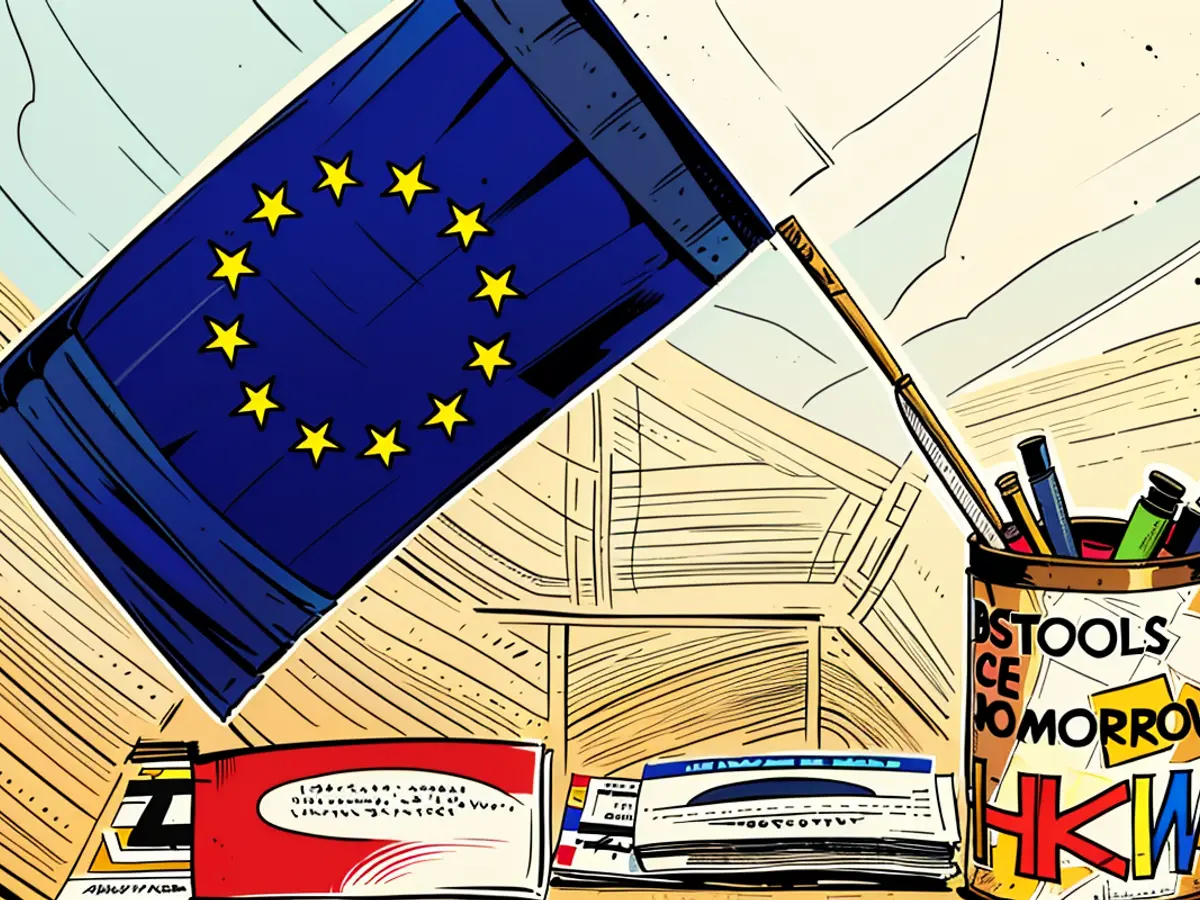Voting Day Commemorated - Promoting participation in European and local votes.
Voting day in Mecklenburg-Vorpommern: Approximately 1.36 million citizens are asked to cast their ballots to select the people who will represent their interests in the European Parliament, county councils, and city and town councils. For the first time, 16- and 17-year-olds are allowed to participate in the European elections. The voting age for local elections in MV was decreased in 1999.
Alongside interest groups, associations, and parties, state election commissioner Christian Boden also emphasized the importance of a high turnout rate. In the concurrent European and local elections of 2019, less than 60% of Mecklenburg-Vorpommern's eligible voters exercised their right to vote.
In the 2024 elections, 2,450 candidates are contesting the 520 seats in the six county councils and the two city councils in Rostock and Schwerin. The CDU has nominated the highest number of candidates, 537, surpassing any other party. Second is the SPD with 421 candidates, then the Left with 258, the AfD with 216, the FDP with 177, and the Greens with 175 candidates. The remaining 614 candidates fall under smaller parties and regional voter groups. Forty-eight independent candidates are also participating in the election.
The six counties' and the two cities' outcomes play a critical role in the state's overall election result. In 2019, the CDU ranked first as the strongest local force with a 25.4% share, followed by the Left (16.3%), the SPD (15.4%), the AfD (14.0%), and the Greens (10.3%). The FDP earned a 4.3% result, while local voters and independent candidates combined made up 10.4%.
A Forsa survey conducted in May on behalf of the "Ostsee-Zeitung" hints at potential shifts on Sunday. The poll indicates that 22% of respondents intend to vote for the AfD, while the CDU claims 19%, and the SPD registers 18%.
Over 10,000 communal political mandates and positions are available in all municipalities, including mayors. Out of the 725 towns and municipalities in MV, 658 are headed by honorary mayors and mayors.
The CDU is fielding more than 3,000 candidates, says the state party. The Union is aiming to maintain its dominant position in the northeastern municipalities after losing heavily in the recent federal and state elections. The Left, SPD, and AfD have each nominated 600 to 700 candidates for the local elections, according to a dpa survey.
The Rostock Green politician Niklas Nienaß has been the single representative of Mecklenburg-Vorpommern in the European Parliament for the past five years. The state's candidates from other parties have been too low down their party lists to have a chance of winning a seat in the EU Parliament.
The SPD's Rostock candidate, Sabrina Repp, is considered a strong contender as she holds the 11th position on the federal SPD's list.
Read also:
- Christian Boden, the state election commissioner in Mecklenburg-Vorpommern, highlighted the importance of high turnout rates for the upcoming European election and local elections.
- The European election on voting day will see approximately 1.36 million citizens in Mecklenburg-Vorpommern selecting representatives for the European Parliament and local councils.
- Election Sunday will determine the outcome of the European election and local elections in 725 towns and municipalities in Mecklenburg-Vorpommern, with over 10,000 communal political mandates and positions available.
- The CDU has nominated the most candidates, 537, for the 2,450 seats in the six county councils and the two city councils in Rostock and Schwerin in the 2024 elections.
- Less than 60% of eligible voters in Mecklenburg-Vorpommern exercised their right to vote in the 2019 European and local elections, and churches like the FDP and the SPD are aiming to improve that turnout rate.
- In the Local elections of 2019, the CDU ranked first as the strongest local force, followed by the Left, the SPD, the AfD, and the Greens.
- Niklas Nienaß, the Green politician from Rostock, has been the sole representative of Mecklenburg-Vorpommern in the EU Parliament for the last five years, but other parties' candidates have been too low on their party lists to secure a seat.
- Sabrina Repp, the SPD's Rostock candidate, is considered a strong contender in the upcoming European election, holding the 11th position on the federal SPD's list.








